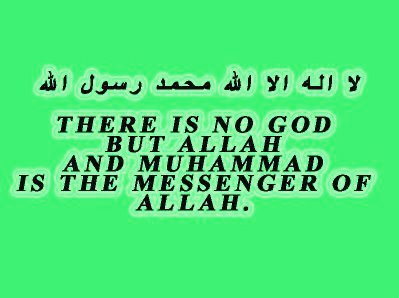Islam and Knowledge
“And now have We set thee (O’ Muhammad) on a clear road (Shari’ah) of (Our) Commandment; so follow it, and follow not the whims of those who know not,” – Holy Qur’an 45:18“Modern science doesn’t claim to address the purpose of life; that’s outside the domain. In Islamic world, purpose is integral part of that life,” – Dr. Muzzafar Iqbal, the founder-president of the Center for Islam and Science, in Alberta (Canada).
“Why did Muslim science declined? That’s a very western question. It flourished for a thousand years. No civilization on Earth has flourished that long in that way….The Islamic science seems to decline only when seen through western secular eyes. It’s possible to live without an industrial revolution if you have enough camels and food,” – Dr. King of Frankfurt.
“Nothing in Europe could hold candle to what was going on in the Islamic world until about 1600 CE,” – Professor Dr. Jamil Rageb (Oklahoma University).
Commanded by Faith – the early Muslims travelled far and wide to seek knowledge and explore the Universe to find more and more signs of the Creator (Allah). Scientic knowlege was never separeted from the religious knowledge. Many of the famous Muslim scientists, astronomists, mathematicians, medicine, and philosophers – were also scholars of Islamic Jurisdiction, and some of them even acted as ‘Qadis (Judges)’ and political advisors to Muslim rulers.
In 2006 – an exhibition in Manchester (UK), displayed sources to prove that Muslim scientists, in the past, had invented 1001 items, which, now, are taken for granted by the westerners – such as, airoplanes, coffee, carpets, cameras, clocks, soap, baths, pills, surgical instruments, astronomy, algebra, and architect, to name a few.
Some of the Muslim intellectuals who have influenced not only the Islamic civilizations in Damascus, Baghdad, Spain, Samarkand, Bukhara, Hindustan, and Sicily – but also helped the West to get out of its Dark Age:
al-Khwarizmi (d. 846) was the father of ‘al-Jabr (Algebra). Ibn Firnas (d. 888) flew first machine (aircraft). Al-Razi (d. 935), who treaties on medicine were taught in western universities for centuries. Ibn Sina (d. 1037), whose medical encyclopedia was taught in western universities till the end of 19th century. Al-Haytham (d. 1039) invented the camera obscura. Al-Biruni was a renown historian of science, diplomate, astrologer, mineralogist, pharmacologist and a scholar of Sanskrit language. Al-Khayyam (d. 1131) was a poet, mathematician and reformer of Indian calendar. Ibn Rushd (d. 1198) was a commentator on Aristotle. Al-Nafis (d. 1377) was a globetrotter. Ibn Majid was 15th century authority on ocean voyages. Some of the 20th century Islamic scholars and scientists include Sayyid Qutb, Sayyid Maududi, Imam Khomeini, Dr. Muhammad Iqbal, Dr. abdul Salam (receiver of Nobel Prize), Dr. Abul Kalam (Father of India’s nuclear bomb and former President of India), Mohamed ElBaradie (Nobel Peace Prize winner and director general, IAEA, and the last but not the least - Dr. Abdul Qadeer Khan, the father of Pakistan’s nuclear arsenal.
Traditionally, learning and research institutions (Darul Aloom) and public libraries were built by Muslim Khalifhas, Kings, and Sultans. They were the great patrons of Islamic and wordly literary studies. In Muslim Spain, City of Cordoba alone had five public libraries, the smallest one with over 500,000 books on religion, science, and art. During the same period, the largest western library was at Vatican with less than 10,000 books – mostly donated by individual Christians to gain ‘Salvation’.
Since the research and inventions done by Muslim, Christian and Jew scholars – was never used for commercial purposes – unlike, such activities were abandoned by Muslim scholars after Muslim civilizations were savagely destroyed by the Crusaders, Franks, Mongol Turks and Russians. These savages burned Muslim universities and great libraries in Baghdad, Spain, Tashkent, and Bokhara. Just five years ago, the inading American forces burned the ’Qur’an Library” in Baghdad.
During the 150-year western colonial period – Most Muslims were denied the opportunities for higher studies or get involved in research. These colonial powers turned Muslim societies into raw-material producers for the West and consumers of western products. The colonial powers also generated a team of corrupt religious elites, who preached the Islamic research (Igtihad) as shirk and unlawful. They wanted Muslims to live in the period of the Prophet Muhammad’s (pbuh), 1400 year ago – and shun every wordly thing which did not exist during that period of time.
Everything is not lost as yet. Muslims can revive their glorious pat, if and only if, they restart the ‘Igtihad with Shari’ah’ tradition of their ancestors. They should put those things to debate, whose solutions cannot found in Holy Qur’an and Shari’ah. Life of a Believer, according to Holy Qur’an (29:69)is nothing but an ‘Igtihad (struggle)’ – a persistent struggle and never-ending exertion. This is the only way Muslims can reclaim Allah’s universal Shari’ah (Holy Qur’an 22:78).

No comments:
Post a Comment